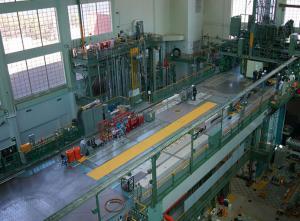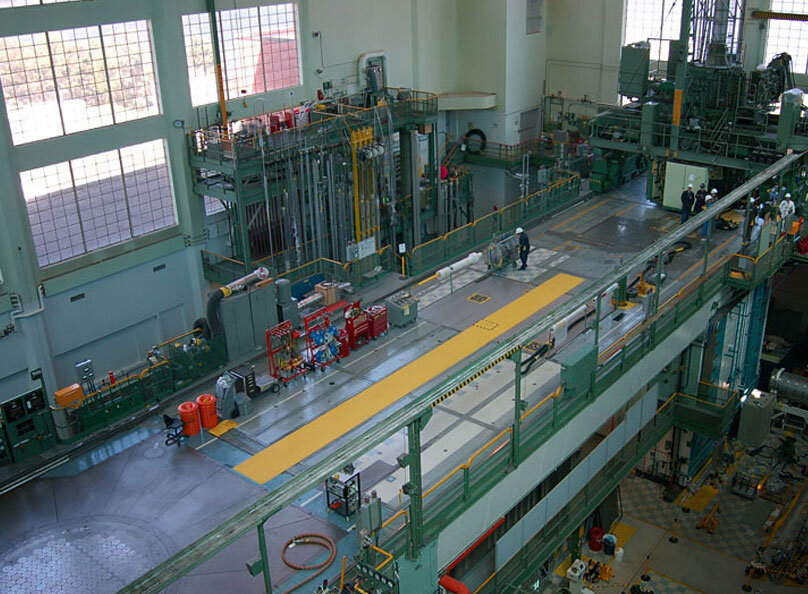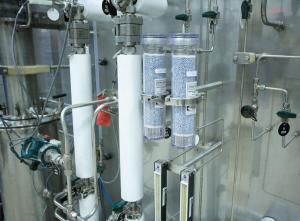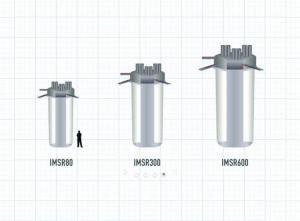
NRU is the Key to Canadian Nuclear Science and Innovation
February 2015

The National Research Universal (NRU) reactor at Chalk River.
An advanced engineering and manufacturing economy – particularly one that values national autonomy and security – derives good value from having a nuclear research capability. The core of such a capability is a research reactor.
Canada has this capacity in the National Research Universal reactor (NRU), located in Chalk River, Ontario and operated by Canadian Nuclear Laboratories, formerly AECL. But it will lose this capacity when the reactor shuts down as planned by March 31, 2018.
The NRU, a high-capability research reactor, is the core in a Canada-wide nuclear research and development infrastructure. It underpins CANDU reactor technology used in nuclear power plants, and supports many life-enhancing applications in as medicine, crop science, and food safety.
The NRU is a strategic training infrastructure. It develops the human capital Canada needs to maintain its international credibility on nuclear energy, non-proliferation, safety and security policies. This expertise includes having the means to regulate nuclear activities and provide for the safety and security of our citizens.
Innovation involving the NRU is already occurring in a number of key areas, such as advanced reactor fuels – a key selling point for CANDU reactors in countries such as the UK and China; and improved safety margins – which is a national security imperative for Canada both at home and abroad.
Innovation is greatly stimulated where there are crucibles or clusters of research and development, even if small, in a specific geographical area. In the nuclear field there are key R&D clusters around Chalk River Laboratories, the Sylvia Fedoruk Centre for Nuclear Innovation in Saskatoon, and southern Ontario.
Together these, plus research facilities at more than a dozen universities, and major scientific facilities such as British Columbia’s TRIUMF and Saskatchewan’s Canadian Light Source (CLS), make up Canada’s “nuclear eco-system”. In southern Ontario, the cluster includes engineering, manufacturing and construction companies that build and maintain the infrastructure for nuclear power generation as well as nuclear R&D.
But the NRU also has a role, practically as well as symbolically, for the success of Canada’s foreign policy, national security, and global markets action plan.
Canada owns the CANDU reactor technology used by seven countries. We have recognized expertise in all areas of the nuclear fuel cycle, from the mining and milling of uranium to the fabrication of advanced fuels to decommissioning and waste management. We bring high safety and security norms to the world. We have a proliferation-resistant reactor design based on natural uranium, not enriched fuel.
The NRU supports operating power reactors in Canada, particularly in life extension. It provides the special conditions that allow testing, experimentation and problem-solving, essential in dealing with aging reactor components. High radioactive environments are necessary to replicate reactor conditions. The NRU provides these, but not just for Canadian-based CANDU reactors.



